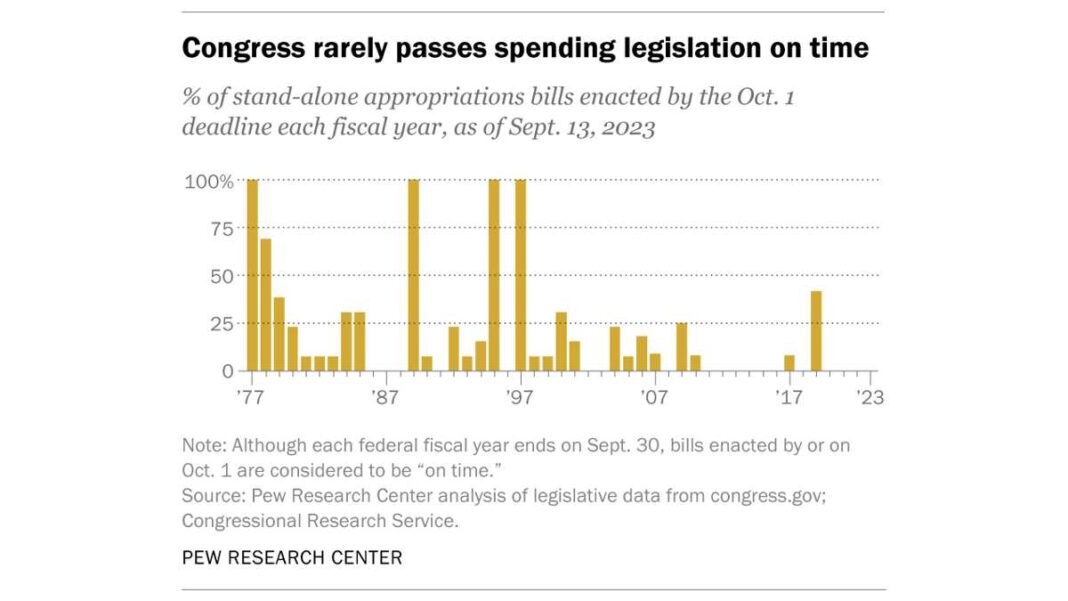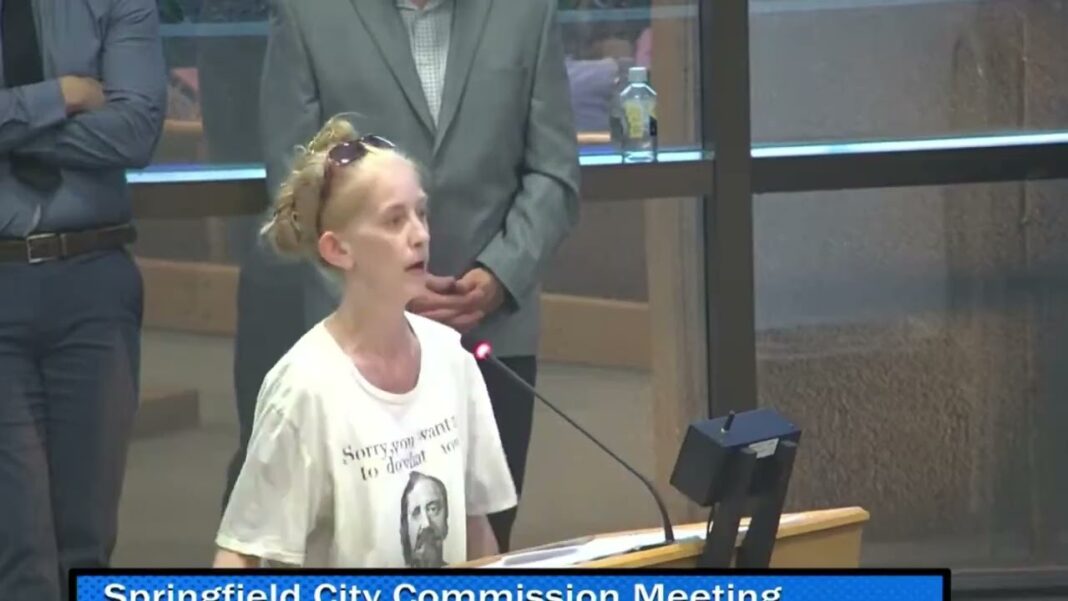As Congress returns to work this week, it will confront a fixed reality – the fiscal year for the U.S. runs from October 1 to September 30 of each year. Year after year, decade after decade, it is the same number of days except for Leap Years, which add a day every four years. FY 2025 starts on October 1, 2024, and runs to September 30, 2025. That period has been the same number of days in a year since 1582 when the Gregorian calendar replaced the Julian calendar, which did not reflect the accurate time it took the earth to travel around the sun.
Within the one-year time frame, Congress is to fund the federal government by passing twelve separate appropriations bills. Today is September 12, 2024, and so far, the institution of Congress (House and Senate) has failed to pass any regular appropriations. Whatever one’s beliefs on the size and cost of government, the situation should raise serious concerns about the management of our nation.
If Congress does not fund the government, there will be a government shutdown in October 2024. While government shutdowns are poorly scripted theater that gives work-at-home bureaucrats more time off with eventual pay, they have significant implications in an election year for the party that is blamed for the shutdown.
Most likely, Congress will pass a Continuing Resolution that funds the government at last year’s high level of funding or pass an Omnibus appropriations bill, which packages all the appropriations bills into a single package. Both mechanisms make thoughtful amendments impossible.
Republicans complain about trillions of Democrat giveaways. Democrats yell about trillions of Republican tax subsidies to the rich and spending for defense. All of this noise is “sound and fury signifying nothing.” Congress acts like children who blame others for their mischief. In all the blame, Congress usually manages the appropriations process by funding more programs than taxpayers give it money to fund.
Calvin Coolidge (1924-1929) was the last administration with a surplus of funds in the treasury. Since 1930, every administration and Congress has spent more money than taxpayers have given. Every fiscal year since 1930, Congress had a chance to change its spending habits. Every year since 1930, it failed to act responsibly. Ninety-five years of increasing national debt is a long time, even for Congress, to fail at managing the nation’s budget and spending. This irresponsible behavior is not just a problem for us, but it’s a burden Congress selfishly passes on to our children.
Congress fits squarely into Einstein’s theory of insanity by doing the same thing repeatedly and expecting different results. The “same thing” is that Congress fails to appropriate the money in the regular order of business, thus avoiding any serious discussions on spending. Regular order would allow all members of Congress the time and opportunity to bring sanity into the appropriations process. Regular order is a time-consuming process of committee hearings and markup, committee approvals, a House/Senate conference if the bills differ, and passage. FY 2025 will be far more difficult than 2024 since the 2023 suspension of the federal debt limit statute and the 2017 Tax Cuts and Jobs Act expire.
According to the Pew Research Center, since 1976 “Congress has passed all of its required appropriations measures on time only four times [in] fiscal 1977, 1989, 1995, and 1997.”
The failure of Congress to competently manage the finances to the U.S. has long-term adverse impacts on our children, allowed the nation to enter too many undeclared wars, drained the nation’s cash to manage emergencies, funds numerous unauthorized laws, and pays too many fraudulent claims on the government. What is baffling about the lack of funding and spending discipline is that both political parties are visibly callous about their responsibilities to properly manage the nation.
As usual, the 118th Congress will fail to pass funding the government in regular order. The 119th Congress, whether Republican or Democrat, will take a long time to organize, dither in meetings on the budget, and fight to protect worthless programs wanted by powerful members and their supporters. Congress will delay any funding decisions to the end of the fiscal year and then complain about a lack of floor time to address whatever FY appropriations are needed. Congress will eventually pass a Continuing Resolution or Omnibus appropriations to fund the government, leaving spending on autopilot and Congress in a state of irrelevancy.
Unfortunately, the congressional appropriations process follows the Kamala Harris theory of “time.”
Talking about the significance of the passage of time, right? The significance of the passage of time. So when you think about it, there is great significance to the passage of time in terms of what we need to do…there is such great significance to the passage of time.
Whatever time Congress operates under we will never know. But one thing is certain – Congress will likely do the same thing next year and use the same excuses for non-performance.
William L. Kovacs, author of Devolution of Power: Rolling Back the Federal State to Preserve the Republic. It received 5 stars from Readers’ Favorite. His previous book, Reform the Kakistocracy, received the 2021 Independent Press Award for Political/Social Change. He served as senior vice president for the U.S. Chamber of Commerce and chief counsel to a congressional committee. He can be contacted at wlk@ReformTheKakistocracy.com






